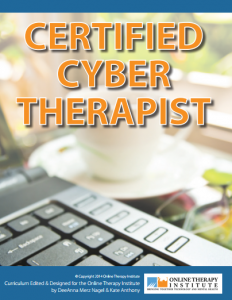 I was delighted to be invited to Oxford UK – the City of Dreaming Spires – to present to the BACPC Oxford Networking group, to talk about Online Coaching. It was a pleasure to meet the well-attended group with new and experienced networking members. Thanks to Anne Cajella for a stunning buffet as well!
I was delighted to be invited to Oxford UK – the City of Dreaming Spires – to present to the BACPC Oxford Networking group, to talk about Online Coaching. It was a pleasure to meet the well-attended group with new and experienced networking members. Thanks to Anne Cajella for a stunning buffet as well!
I’m pleased to be able to share this overview of the event from one of the attendees, Michèle Taylor!
Kate
On the 24th June 2013, the Oxford, Bucks, Berks and Midlands (UK) Region we were extremely fortunate to spend the evening with Dr Kate Anthony, who is Executive Specialist for Online Coaching for BACP Coaching Division and the leading expert on the use of technology in therapy.
Kate gave us a presentation on the opportunities, potential pitfalls and specific issues around taking our coaching skills online, and managed to weave in a free-ranging discussion as she went along.
Like many around the table that evening, I am comfortable with technology, have used Skype for remote sessions with clients and have a presence on Facebook, Twitter and LinkedIn. But Kate took our awareness into whole new arenas, sharing her expertise and experience to reassure and challenge in appropriate measure.
Kate emphasised the necessity of working to an ethical framework designed specifically for this area of work and gave us nuggets of information about issues such as on-line security (encryption, encryption, encryption) and also signposted us to free resources we can use to support our forays into cyberspace. We discussed the basics such as using video-conferencing and e-mail for sessions, through the opportunities presented by Chat platforms and ended up looking at ‘avatar coaching’ wherein the coach has an identity in a world such as Second Life and offers coaching to other avatars within that world, virtual consulting room and virtual coffee included.
Guiding us through what she called the ‘Spectrum of Closeness’ (from Web 1.0 to avatars in virtual reality via web 2.0 and VOIP), Kate explored practical considerations with us whilst tethering her knowledge to the coaching relationship and the impact on this relationship of using on-line technologies.
Disinhibition was mentioned several times during the evening as a defining feature of on-line coaching and counselling relationships, providing both fertile ground for the work and also plenty of challenges: clients may behave in the relationship in ways they would not dream of behaving in a face to face encounter.
Kate emphasised the significance of ‘cyberculture’, giving us a very clear flavour of the on-line world which many of our clients inhabit or at least pass through. We need to be aware of the on-line activities and even identities that our clients might engage with and be respectful of that aspect of their cultural identity – even if we choose not to offer coaching within that sphere. Where we do choose to operate in cyberculture, there are many considerations we need to take seriously in order to practice as safely and rigorously there as we do in the physical world.
Michèle Taylor


